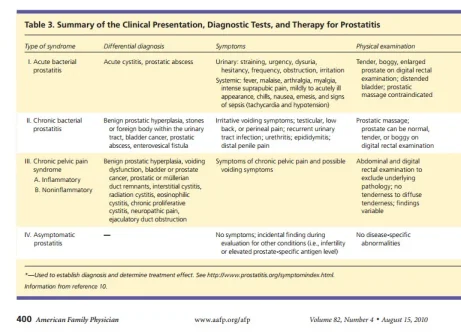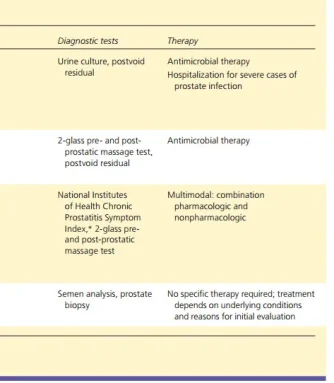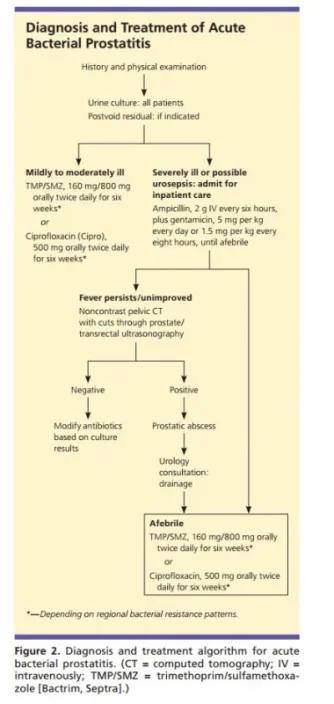Nelson Vergel
Founder, ExcelMale.com
Some prostatitis cases are very difficult to treat but most respond to antibiotic treatment. This meta analysis reviewed only advanced cases of prostatitis.
Antibiotics are not beneficial in the management of category III prostatitis: A meta analysis - Abstract
Purpose: To determine whether antibiotics are beneficial in the management of category III prostatitis.
Materials and Methods: The PubMed, Medline and Embase databases were searched for all published documents from January 1, 1965 to September 1, 2012 without language restriction. The randomized controlled trials that mentioned comparable groups of antibiotics treatment versus placebo or other control group for patients with category III prostatitis were included based on specific criteria. The quality of studies was assessed by the modified Jadad scale, and Revman 5.0 software was used for data syntheses and analysis.
Results: Seven studies which met the selection criteria were included in this review. All of them were high quality according to the modified Jadad scale. A random effect model was applied because of the high heterogeneity. The meta-analysis showed that summary association between category III prostatitis and antibiotics were not statistically significant.
Conclusion: Our meta-analysis reveals that antibiotics are not beneficial in the management of category III prostatitis. Therefore, we may reduce the usage of antibiotics in such a population.
Written by:
Zhu Y, Wang C, Pang X, Li F, Chen W, Tan W.
Department of Urology, Nanfang Hospital, Southern Medical University, Guangzhou,China; Section 5 Department of Internal Medicine, Guilin TCM Hospital of China, Guilin, China.
Reference: Urol J. 2014 May 6;11(2):1377-85.
Antibiotics are not beneficial in the management of category III prostatitis: A meta analysis - Abstract
Purpose: To determine whether antibiotics are beneficial in the management of category III prostatitis.
Materials and Methods: The PubMed, Medline and Embase databases were searched for all published documents from January 1, 1965 to September 1, 2012 without language restriction. The randomized controlled trials that mentioned comparable groups of antibiotics treatment versus placebo or other control group for patients with category III prostatitis were included based on specific criteria. The quality of studies was assessed by the modified Jadad scale, and Revman 5.0 software was used for data syntheses and analysis.
Results: Seven studies which met the selection criteria were included in this review. All of them were high quality according to the modified Jadad scale. A random effect model was applied because of the high heterogeneity. The meta-analysis showed that summary association between category III prostatitis and antibiotics were not statistically significant.
Conclusion: Our meta-analysis reveals that antibiotics are not beneficial in the management of category III prostatitis. Therefore, we may reduce the usage of antibiotics in such a population.
Written by:
Zhu Y, Wang C, Pang X, Li F, Chen W, Tan W.
Department of Urology, Nanfang Hospital, Southern Medical University, Guangzhou,China; Section 5 Department of Internal Medicine, Guilin TCM Hospital of China, Guilin, China.
Reference: Urol J. 2014 May 6;11(2):1377-85.
Last edited:














